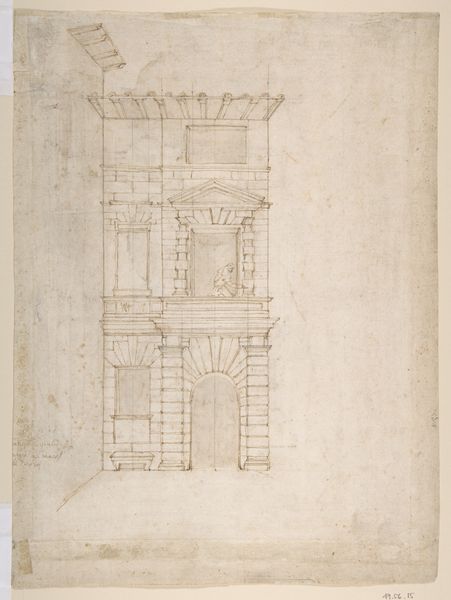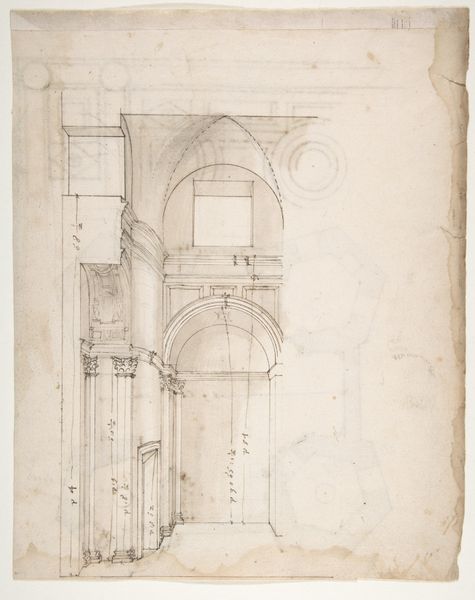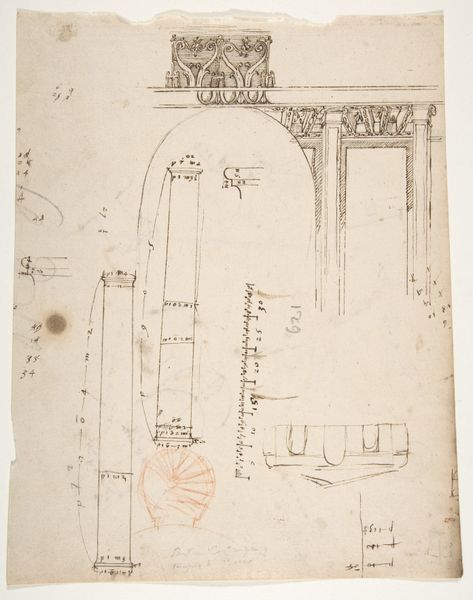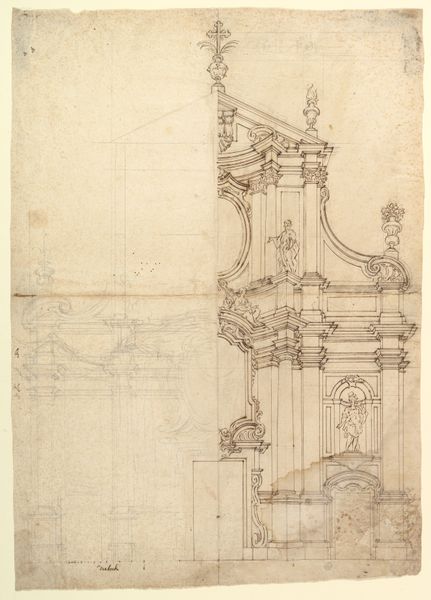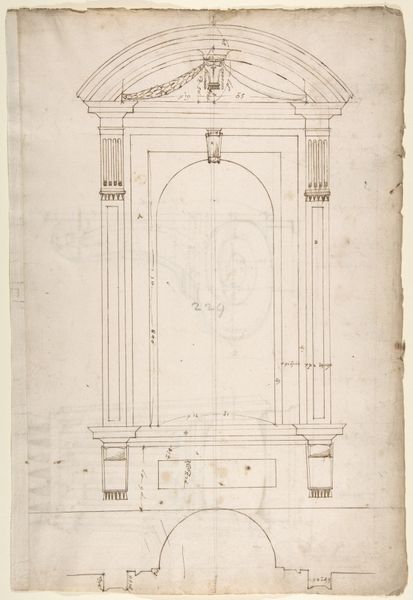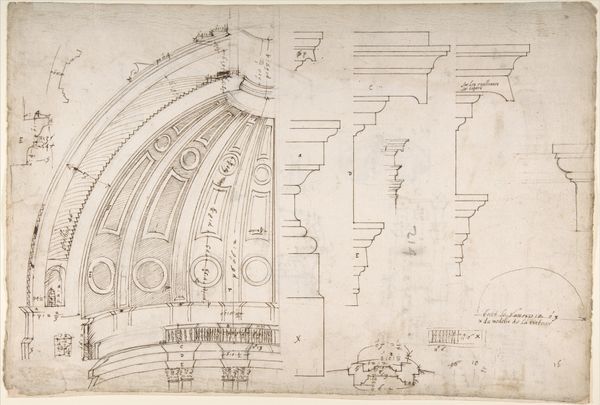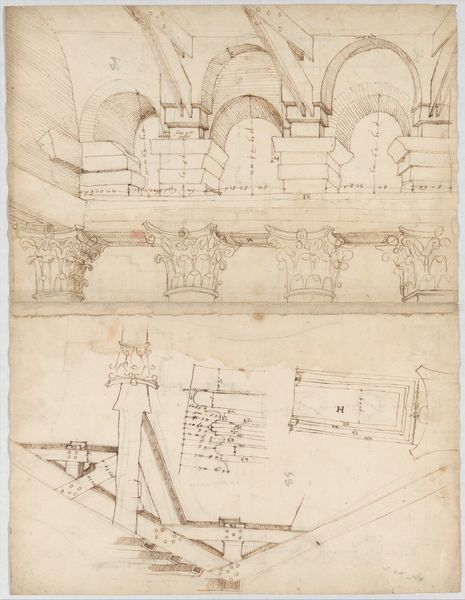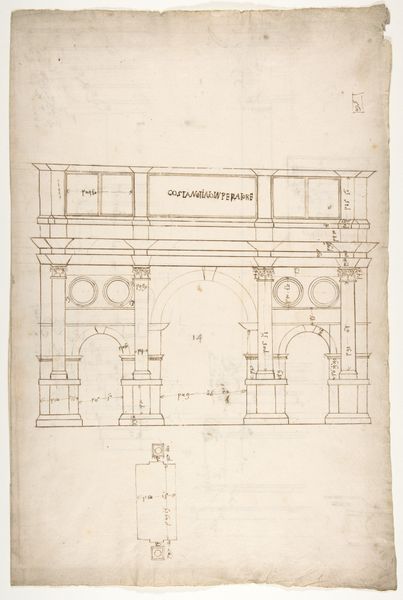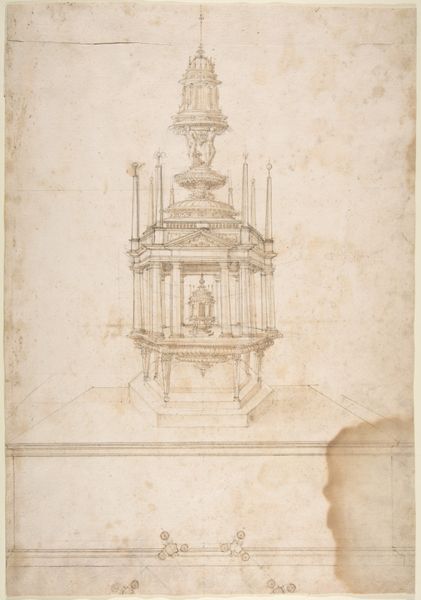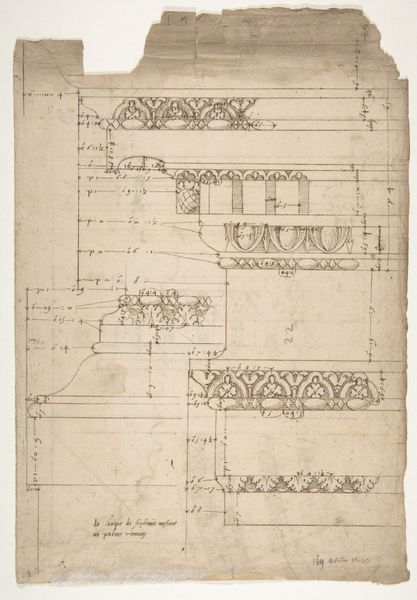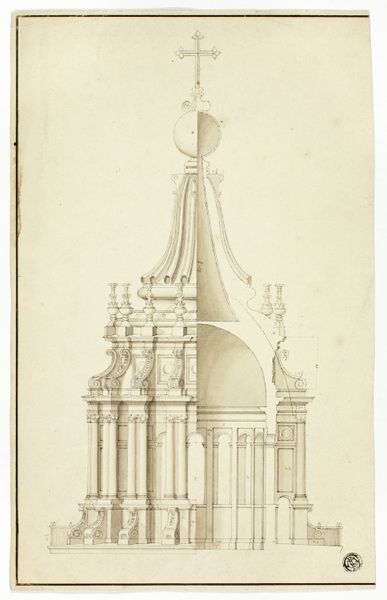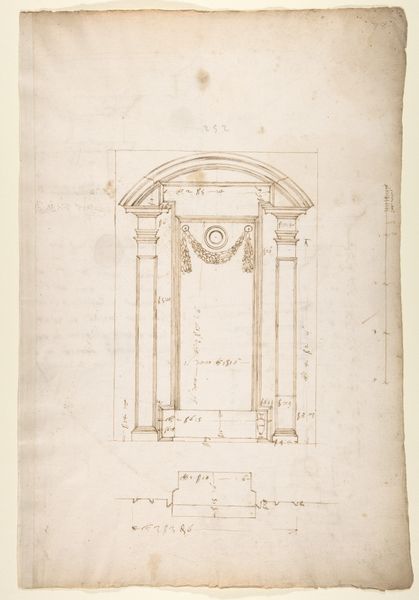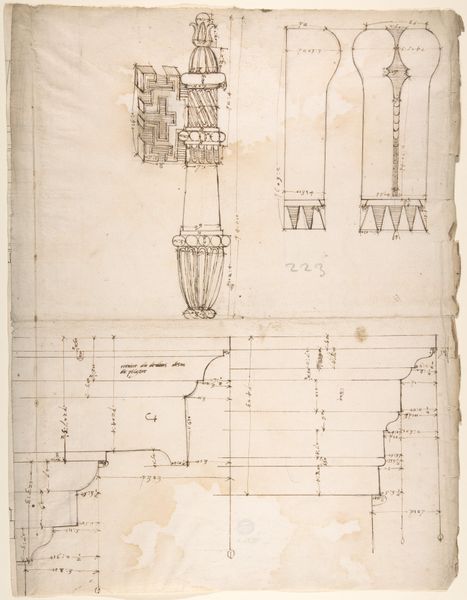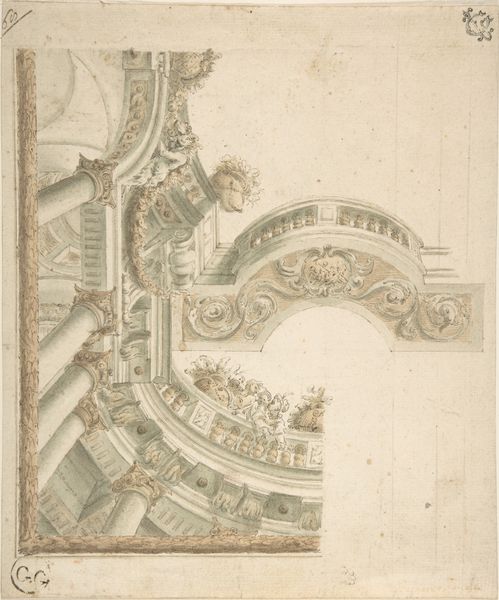
St Peter's, dome, model, half elevation (recto) blank (verso) 1500 - 1560
0:00
0:00
drawing, architecture
#
drawing
#
form
#
geometric
#
line
#
italian-renaissance
#
architecture
Dimensions: sheet: 17 3/8 x 11 5/8 in. (44.2 x 29.5 cm)
Copyright: Public Domain
Curator: This delicate drawing, believed to date between 1500 and 1560, presents a partial elevation of the St. Peter's dome model. It is part of the Metropolitan Museum of Art's collection. Editor: It's remarkably sparse. I’m immediately struck by the linear precision and how much is conveyed with so little shading, almost skeletal. Curator: The technique, using only lines, certainly focuses the eye on pure form. We see here not the finished magnificence, but the underlying geometry that makes it possible. Editor: Exactly. The drawing showcases the interplay between basic geometric forms, line quality, and proportion. You're left contemplating not only the object's shape, but also the relationship between different geometric elements. How do you feel the blank space affects this? Curator: Intriguing point. The use of empty space perhaps serves to highlight the subject itself. Consider the labor, skills, and socioeconomic system needed to realize a vision on this scale. Every carefully measured line also tells us of human ingenuity and the vast enterprise required for its realization. Editor: True. There’s a clear relationship between precision of draftsmanship and the grandeur of what is designed to be built. I think that also the semiotic interpretation adds depth to what the structure actually expresses in reality: authority, order, rationality. Curator: It makes you consider how a single artwork is also evidence of human effort across centuries, doesn't it? This architectural drawing allows one to explore an entire socio-economic story, from drawing table to construction site. Editor: Looking at the drawing this way does help me see the symbolic significance within this artwork! It is interesting to study beyond its form, also in relation to the production circumstances of art. Curator: I concur. The essence of form reveals more when anchored by historical insights. Editor: It is quite stimulating to revisit such art pieces to rethink what meanings lie inside them.
Comments
No comments
Be the first to comment and join the conversation on the ultimate creative platform.
